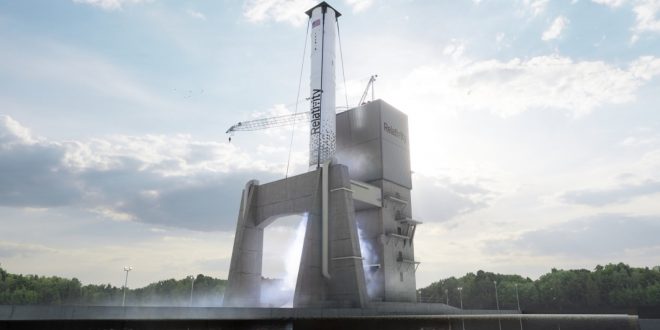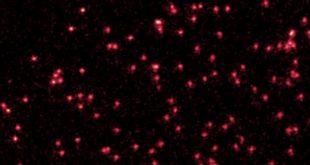Today, Relativity Space announced it would lease a historic first-stage test stand at NASA’s Stennis Space Center to advance Terran R launch vehicle development.
NASA will lease the A-2 Test Stand to Relativity for seven years for $2.76 million. The company can renew the lease for 10 years. The investment expands Relativity’s Stennis footprint to over 300 acres in Mississippi.
The A-2 stand, like many others at Stennis, was built in the 1960s to test Saturn V rocket engines. NASA first tested Space Shuttle main engines on the stand in 1976, then J-2X rocket engines. Commercial aerospace companies will use the stand for the first time.
“The A-2 Test Stand has a rich history for NASA and NASA Stennis,” said director Rick Gilbrech. It hosted milestone tests like the Apollo Saturn S-II stage, space shuttle main engine, and Constellation J-2X engine. It’s exciting to see this historic structure still providing propulsion almost 60 years later.”
The stand has been vacant for nearly a decade, so Relativity will invest an undisclosed amount in infrastructure upgrades. The test stand only supports thrust up to 650,000 pounds. Relativity’s upgrades will allow the stand to support 3.3 million pounds of thrust.
It plans advanced first-stage testing of the medium-to-heavy lift Terran R rocket. Relativity said the new stand will increase testing and shorten time to market.
Relativity holds other exclusive-use, 10-year agreements for the E2 and E4 engine testing complexes at Stennis, where it has the largest commercial presence. The company is building the R Complex to support Terran R vehicle and engine testing, including additional engine test stands and a full-scale stand for second-stage testing.
Company plans to invest $267 million in Stennis facilities by 2027. The first Terran R launch is Relativity’s goal for 2026.
 Tech Gadget Central Latest Tech News and Reviews
Tech Gadget Central Latest Tech News and Reviews




